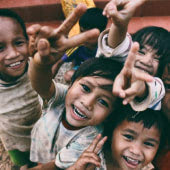By Saheed Ibrahim
The Ojude Oba (king’s fore-court) Festival, held annually in Ijebu-Ode, Ogun State, Nigeria, is a vibrant celebration that showcases the rich cultural heritage of the Yoruba people. This event, which takes place on the third day after Eid-el-Kabir, is not just a festival but a manifestation of tradition, unity, and pride in Yoruba culture. The glamour and glitz of Ojude Oba serve as a testament to the beauty and depth of African cultural expressions, offering a remarkable example of how tradition can thrive in a modern context.
The festival, which started over a hundred years ago as an all-Muslims affair has transcended beyond religious lines to attract people of different faiths. The festival came into existence when the earliest Muslim converts in Ijebu-ode paid homage to the Awujale of Ijebuland to thank him for granting them the freedom to practice their religion.
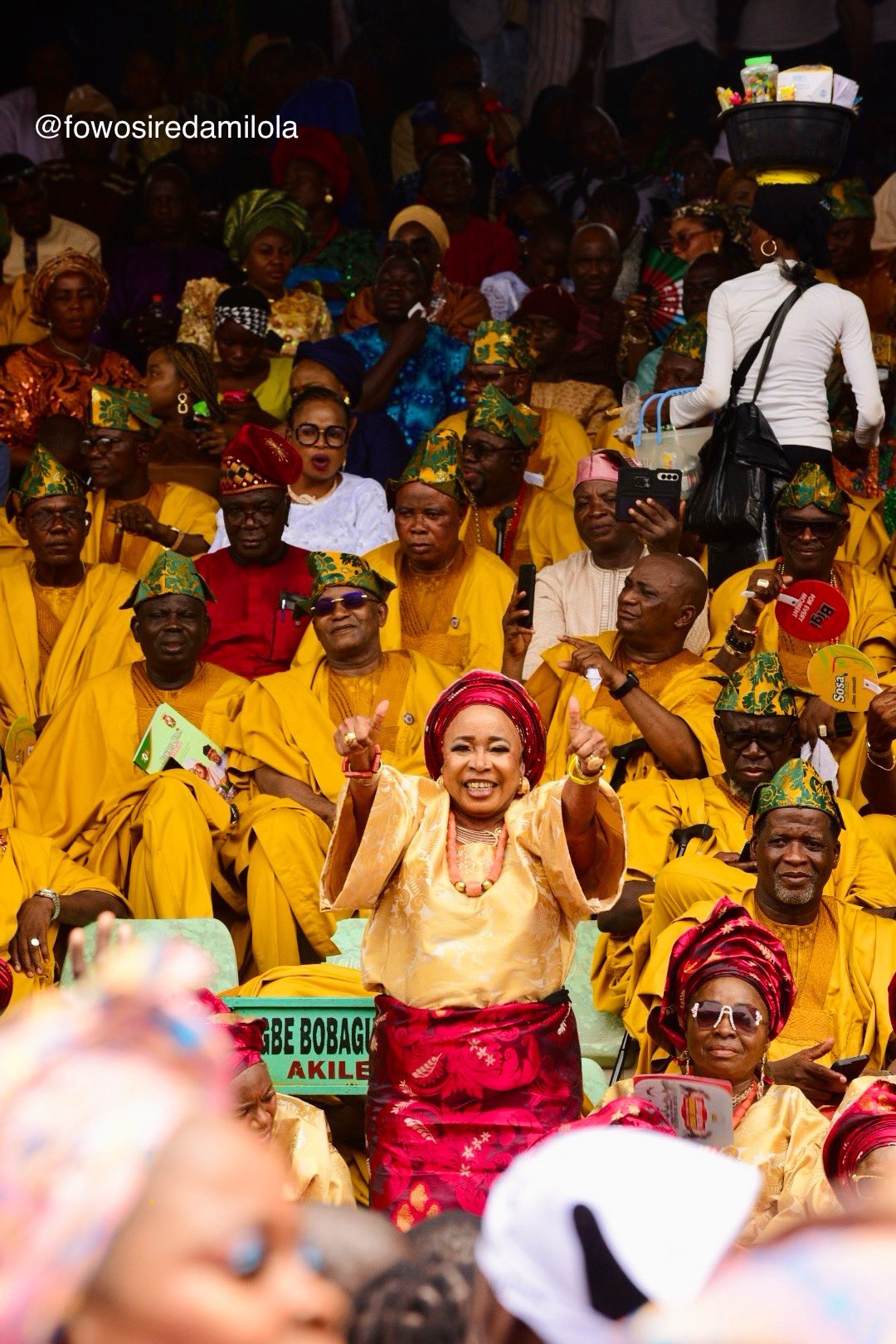
The Ojude Oba Festival is a spectacle of colour, fashion, and music. One of the most striking aspects of the festival is the display of traditional attire. Participants don elaborately designed ‘agbada’, ‘iro’ and buba’ ‘gele’, and other conventional Yoruba garments, each piece telling a story of heritage and identity. The attire is often adorned with intricate embroidery, beads, and accessories that reflect the status and creativity of the wearer. This visual feast is a powerful reminder of the Yoruba’s rich textile and fashion heritage. This tradition has been passed down through generations.
The festival grounds are transformed into a vibrant scene, with horse riders and different age groups, known as ‘Regberegbes’, parading in stunning costumes. The riders, representing different age groups and social clubs within the Ijebu community, showcase their horsemanship and the beauty of their steeds, often decorated with colourful fabrics and ornaments. The regal appearance of the riders and their horses adds a layer of grandeur to the event, highlighting the importance of equestrian culture in Yoruba history.
Beyond the visual splendour, Ojude Oba is a profound celebration of Yoruba culture and values. The festival features traditional music and dances integral to Yoruba ceremonies for centuries. The rhythmic beats of the talking drum, the melodies of indigenous songs, and the energetic dances all contribute to an atmosphere of joy and communal bonding. These performances are not just for entertainment; they are expressions of Yoruba spirituality, history, and social cohesion.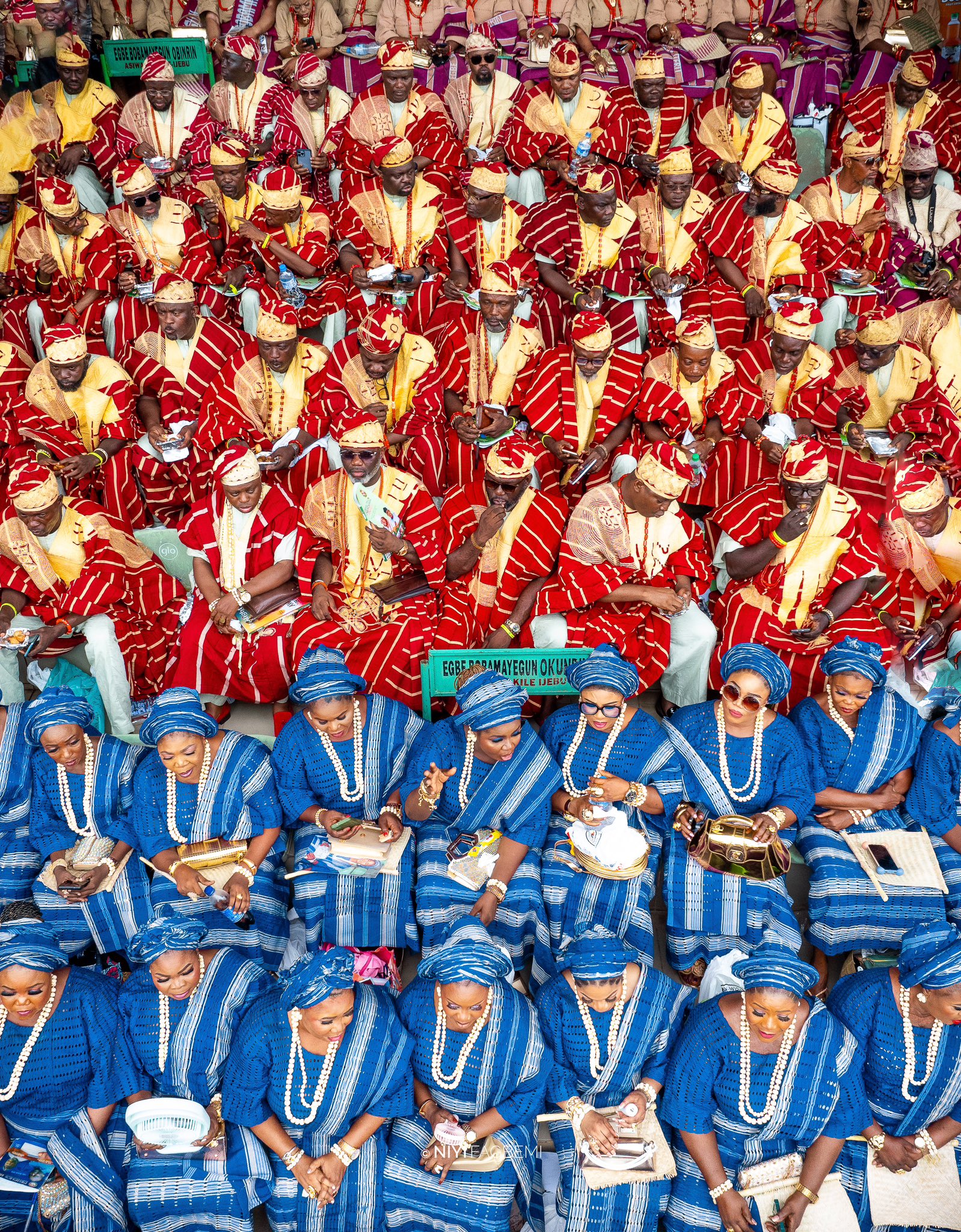
The festival also includes prayers and tributes to the Awujale (the king of Ijebu) and the ancestors, emphasizing the Yoruba’s deep respect for their leaders and forebears. This aspect of the festival underscores the importance of continuity and the reverence for those who have shaped the community’s past and present.
Ojude Oba is a microcosm of the broader African cultural landscape, characterized by diversity, richness, and a deep connection to history and tradition. The festival illustrates how African cultures can celebrate their heritage while embracing modernity. The blending of ancient customs with contemporary elements in Ojude Oba demonstrates the adaptability and resilience of African traditions.
African cultures, much like the Yoruba, place a high value on community, respect for elders, and the celebration of life through festivals and rituals. These aspects are vividly displayed in Ojude Oba, where the community comes together in a unified expression of joy and cultural pride. This collective celebration is a powerful statement about the importance of cultural heritage in fostering identity and unity.
Of What relevance is the Festival?
The 2024 edition of the festival was celebrated on June 18, with the theme “Unity and Harmony in Ijebuland: The Gift of Ojude Oba”. Just as every year, images from the festival have broken the internet. Hardly do you scroll pass five contacts’ status on WhatsApp without one person having an image from the festival uploaded. The festival no doubts has certain relevance.
Preservation of Cultural Heritage
Firstly, it shows the importance of preserving and celebrating cultural heritage. In a globalized world where traditions can easily be overshadowed by modern influences, Ojude Oba stands as a beacon of cultural preservation in the African continent. It reminds us that connecting to our roots enriches our present and future. Other festivals in various African communities should be promoted by the custodians to ensure the festivals are not abandoned.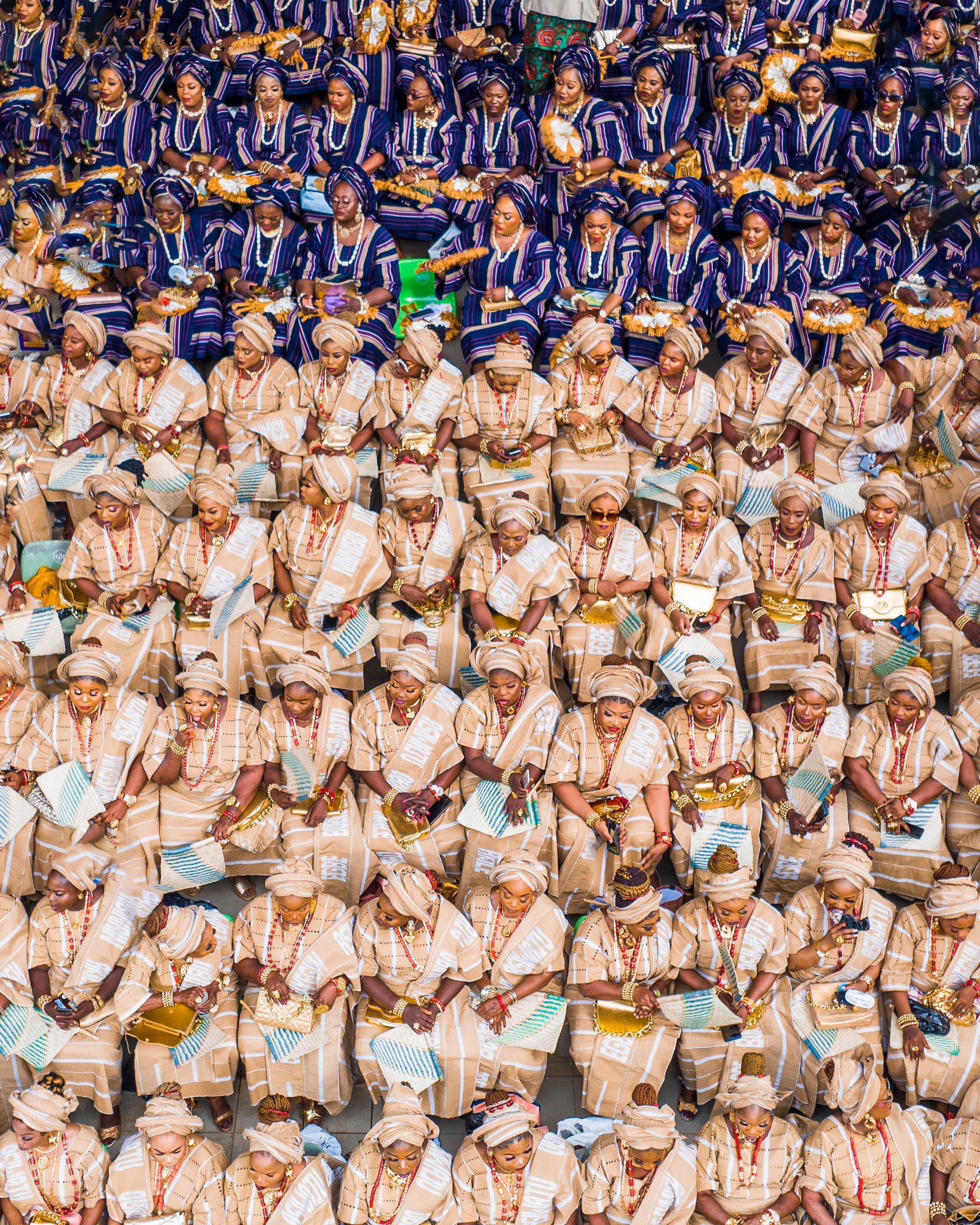
Role of Community
Secondly, the festival highlights the role of community in cultural celebrations. The participation of diverse age groups and social clubs in Ojude Oba underscores the value of inclusivity and intergenerational engagement. This communal aspect strengthens social bonds and ensures that traditions are passed down through generations. Festivals do not promote themselves, they need various communal groups to ensure they reach the global stage.
Tourism and Economic Development
Also, Ojude Oba demonstrates the potential of cultural events to promote tourism and economic development. The festival attracts visitors from different parts of the world, showcasing the appeal of African cultural heritage as a tourism asset. By investing in and promoting such events, communities can boost their local economies while sharing their unique cultures with a global audience. During this year’s celebration, the Minister of Culture, Arts and Creative Economy, Hannatu Musa-Musawa, revealed that the federal government planned to list the annual Ojude Oba as one of the festivals backed by the United Nations Educational, Scientific and Cultural Organisation (UNESCO). She described the annual festival as a platform for fostering the unity of the country and one of the country’s tourism potentialities.
As the Chairman of Globacom, Dr Mike Adenuga Jr. also noted, “these age-long festivals could foster cultural exchange and showcase Nigeria’s rich heritage to the world.” He added that the festivals also have the potential to boost tourism and help in the diversification of the economy which was why the Federal Government and many governments across the globe have placed tourism on top of their development agenda.
Testament to Resilience
In addition, the Ojude Oba Festival is a testament that Africa is beyond stereotypes and the challenges it may currently face. Despite economic, social, and political difficulties, the festival illustrates the resilience and strength of African cultures. It shows that Africans can rise above hate, adversity, and hardship, coming together to celebrate their heritage and identity with pride and joy.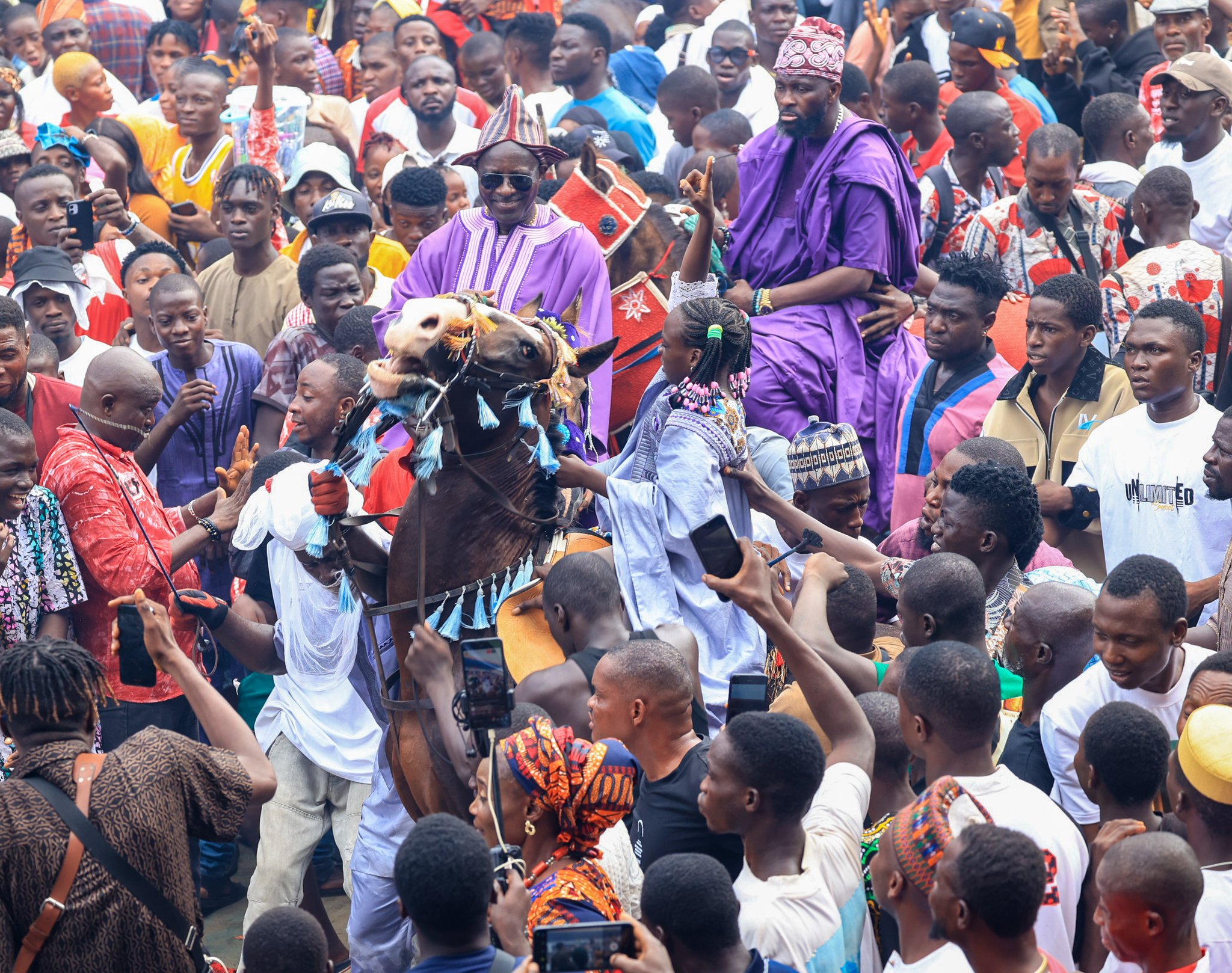
Unity and Peaceful Coexistence
The festival emphasizes unity and peaceful coexistence among the Yoruba people and, by extension, among all Africans. Beyond religious, economic, political and communal lines, Ojude Oba is a bond to celebrate as one indivisible entity. This unity in diversity is a powerful message against the divisive narratives often associated with Africa. The theme for this year’s celebration: “Unity and Harmony in Ijebuland: The Gift of Ojude Oba” is a testament to the power of the festival to unite the various groups and clans in Ijebuland.
Pride in African Identity
Ojude Oba is a profound expression of pride in African identity. The celebration of Yoruba culture in such a grand and public manner sends a strong message about the value and beauty of African traditions. It encourages Africans to take pride in their cultural heritage and showcase it confidently to the world.
Innovation within Tradition
The festival also demonstrates how traditional practices can innovate and adapt to contemporary times. The integration of modern elements in the festival’s music, fashion, and organization shows that cultural heritage is not static but dynamic. This adaptability ensures that traditions remain relevant and engaging for younger generations. The unique ways Yoruba attires are donned during the annual celebration are worth studying. No doubt the word “Steeze” has been used to describe the elegant look of some participants, especially, Mr Farooq Oreagba, an investment professional and the managing director and CEO of NG Clearing Limited. He is also a former head of the Nigerian Stock Exchange Consult.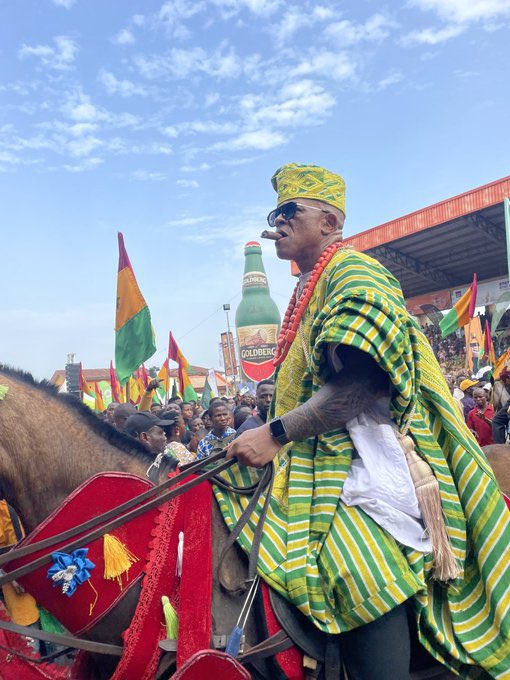
Fostering Positive International Perception
By showcasing the rich cultural heritage of the Yoruba people, Ojude Oba helps foster a positive international perception of Africa. The festival counters negative stereotypes by highlighting the continent’s rich traditions, vibrant communities, and the joy with which they celebrate life. It offers a narrative of Africa filled with beauty, culture, and resilience.
Educational Opportunities
Finally, Ojude Oba provides educational opportunities for both locals and visitors. It is a living museum of Yoruba culture where people can learn about history, traditions, and values through direct experience. This educational aspect helps preserve knowledge and fosters a deeper understanding and appreciation of Yoruba and by extension African cultures.
The Ojude Oba Festival exemplifies the profound importance of promoting cultural heritage through vibrant celebrations, serving as a powerful reminder for Africans to embrace and showcase their rich traditions. By actively participating in and supporting such festivals, Africans can contribute to shaping positive narratives that highlight the continent’s diversity, resilience, and beauty. These cultural events not only preserve invaluable traditions for future generations but also counteract negative stereotypes, fostering pride and unity. In celebrating festivals like Ojude Oba, Africans affirm their identity and heritage, presenting a dynamic and authentic image of Africa to the world.




